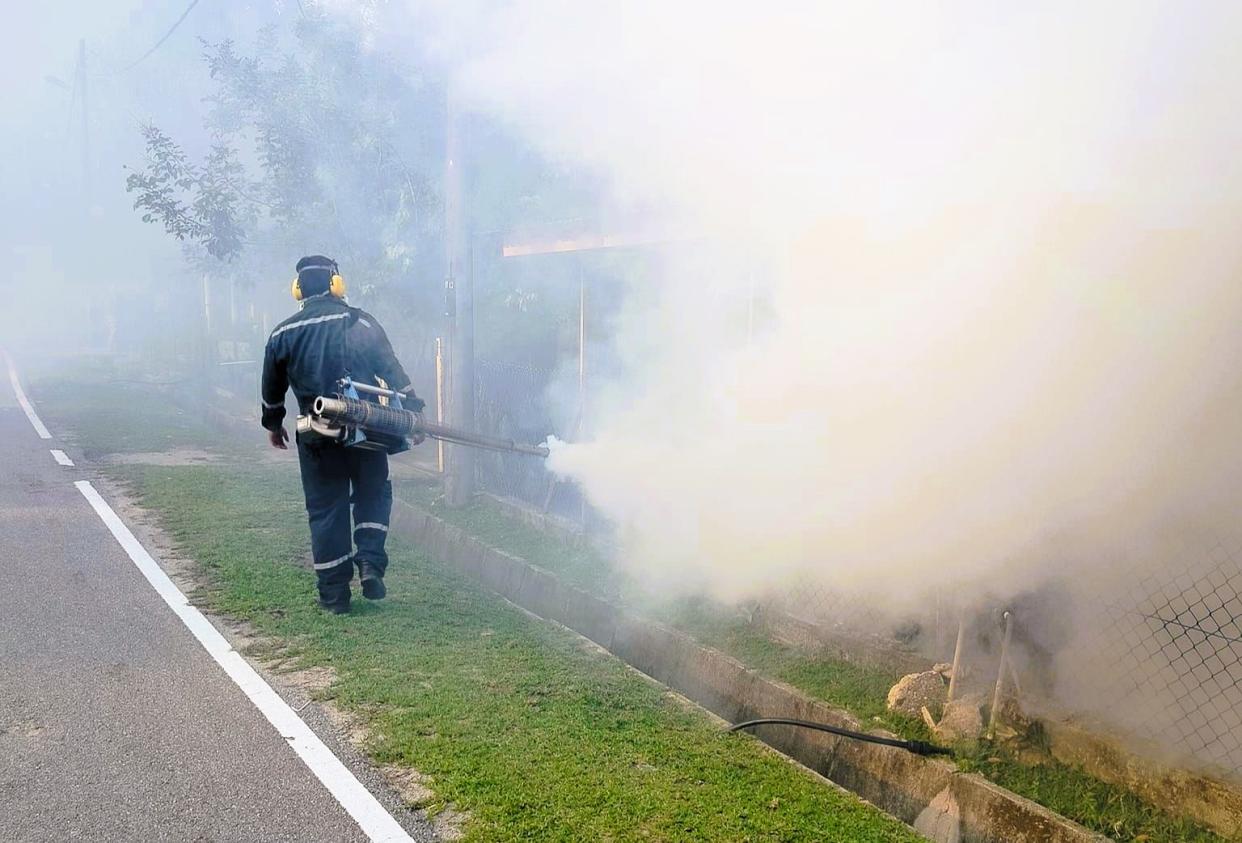‘Fogging ineffective against dengue, but vaccinations can reduce symptoms, deaths’

Fogging is ineffective in killing the mosquitoes that carry the dengue virus, which is why the Dengue Prevention Advocacy Malaysia (DPAM) welcomes the new dengue vaccine developed by Japanese pharmaceutical giant, Takeda.
DPAM chairman Datuk Dr Zulkifli Ismail, however, said while the new vaccine is not mandatory, he recommends that those in high-risk areas consider taking it to help reduce the symptoms, and even death.
Takeda’s Qdenga vaccine underwent four-and-a-half years of clinical trials – the longest of such trials. Only mild side effects such as redness, mild fever, and body aches were recorded.
“The best way to eradicate dengue is to kill the mosquitoes. Fogging is ineffective. It gives the illusion that we are doing something to combat dengue,” said Dr Zulkifli at today’s launch of the Qdenga vaccine in Kuala Lumpur.
The new Qdenga dengue vaccine is safe for those aged four and above. Unlike the Dengvaxia vaccine, which used Yellow Fever as the backbone of the vaccine, Qdenga uses the Dengue Two serotype as its backbone, thus, mimicking the natural infection.
“Dengue needs a whole-of-society approach – from the health, education, and environment ministries – and from ‘technical advisors’ – entomologists – who know about mosquitoes.
“Everyone must play a part in preventing the rise in cases and deaths.”
He added that if we did not take care and clean up our surroundings, that would enable mosquitoes to breed.
“Since I started my medical career in the 1980s, I have witnessed many dengue cases, and seen first-hand the damage it causes. So, while parents don’t need to vaccinate their children or themselves, my advice is, go get the vaccine,” said Dr Zulkifli.
However, he added that the dengue vaccine is not mandatory.
“Unlike measles or Covid-19, if you have dengue, you can’t pass it on to someone else,” said Dr Zulkifli.
“Bear in mind, there is no specific treatment for dengue. The focus is on treating pain symptoms. As such, the best way to deal with it is to have the vaccine.”
He said that dengue in Malaysia was first mentioned in a British medical journal in 1902, following an outbreak the year before in George Town, Penang.
“The economic burden of dengue in Southeast Asia is almost US$1 billion,” he added.
According to the World Health Organisation (WHO), there has been a substantial increase in the number of cases of dengue over the past five years, particularly in the Americas.
In Malaysia, dengue cases have increased significantly, with 123,133 cases reported in 2023, marking an 86.3 per cent rise compared to the previous year.
Dengue-related deaths also increased by 78.6 per cent , with the highest concentration of cases in Selangor.
In the first quarter of 2024, there were 41,565 reported cases and 28 deaths attributed to dengue fever complications, showing a rise compared to the same period in 2023.
Currently, 90 countries have known active dengue transmissions, not all of which have been captured in formal reporting. As of April 30, 2024, over 7.6 million dengue cases have been reported to WHO, including 3.4 million confirmed cases, over 16,000 severe cases, with over 3,000 deaths.
WHO is also organising a webinar on June 13 regarding dengue.
The post ‘Fogging ineffective against dengue, but vaccinations can reduce symptoms, deaths’ appeared first on Twentytwo13.


